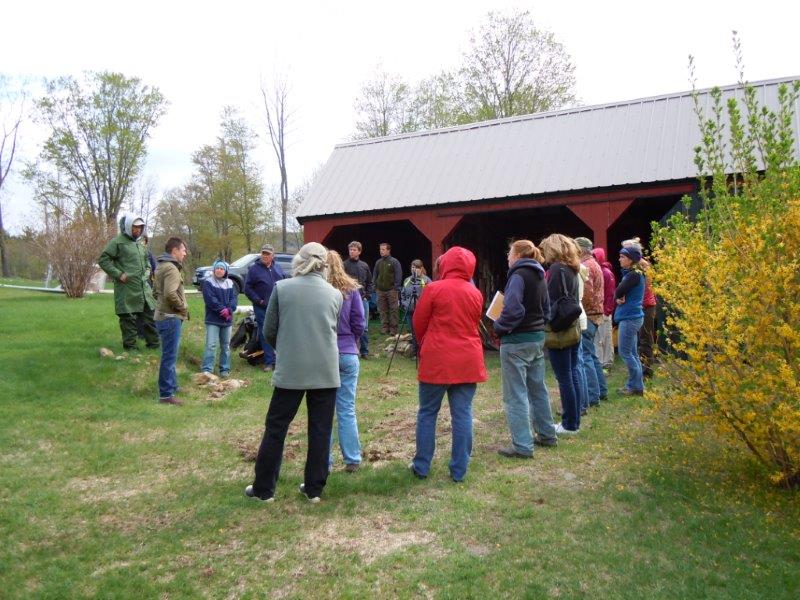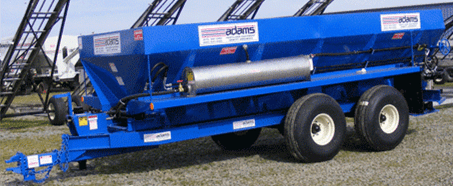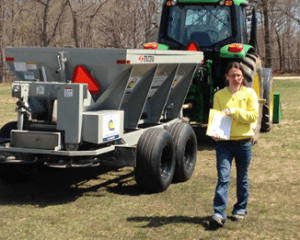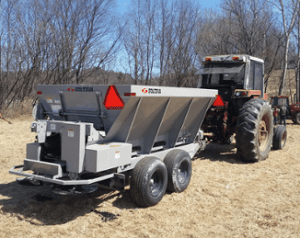Dave Smith, who has worked with RMI since 2006, is the owner of Otter River Farm, LLC in Winchendon Massachusetts. Dave milks about 200 cows onsite to create his award-winning cheeses, but his farm footprint is very small. With no cropland, Dave composts all of his manure in two recently-constructed buildings spanning 30,000 square feet. “Using non-separated manure, it is essential to make sure no additional moisture is added, so we keep the entire operation undercover” Dave stated. Dave uses RMI products FiberDry and EcoBoost in his aerated static compost piles to aid in the composting process. “I use FiberDry for a dependable carbon source. The EcoBoost, helps me control odors and add some porosity” Dave explained. Dave retails his compost under the name Otter River Black Gold, which is available in retail bags and also in bulk at his farm stand.
RMI is pleased to be part of the recipe that has made Black Gold Compost a success story!
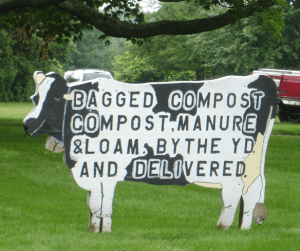
It was a wet spring this year in Morrisville, Vermont. Heavy rains left standing water in the fields into late May, and there was very little sun in June. When faced with a shortened growing season, soil health is paramount. Wood ash customer, Gary Greaves was able to grow a healthy stand of
corn. Gary’s 95 day-to-maturity corn stood over 6 feet tall at the end of this summer, while other stands in the area were extremely varied. Gary grows mainly corn silage on 92 acres. He averaged 18-20 tons per acre in a relatively poor growing season. This particular corn field was a former alfalfa field that had been amended with pH+Plus Green wood ash. “I was anticipating to have that kind of yield, but with the growing season we had, I wasn’t sure. The potash made the difference. On other fields, that didn’t get the ash, I had to add 30-0-20 in season to give it a boost. I am pleased with the result.”

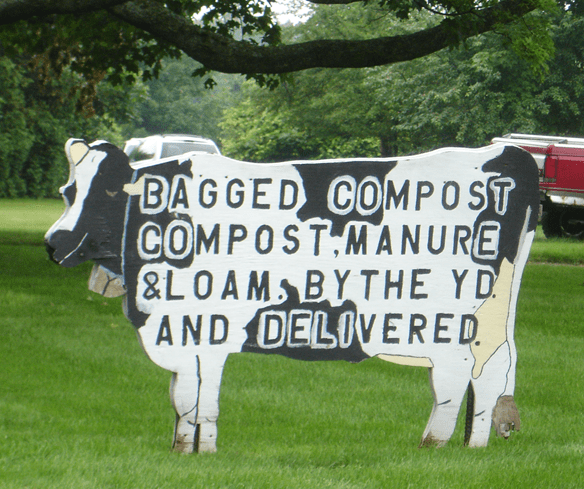


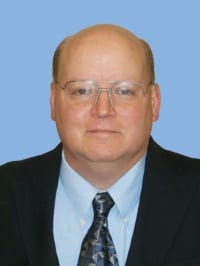 rge Faran joined the RMI team in June as our Operations Assistant. In this role, George is responsible for the daily dispatch of the company’s truck fleet. This includes scheduling generator pickups and end user deliveries. Prior to joining RMI George worked for our next door neighbor MegaPrint as a production manager. George has extensive work experience in public safety including fire and police dispatch, and is a talented saxophonist playing in local community bands. If you go to a game at the Plymouth State University ice arena you will likely see George operating the Zamboni machine. George earned an Associate’s Degree in Fire Protection at NH Vocational-Technical College in Laconia and a BS Degree in Business Administration at Plymouth State University, New Hampshire.
rge Faran joined the RMI team in June as our Operations Assistant. In this role, George is responsible for the daily dispatch of the company’s truck fleet. This includes scheduling generator pickups and end user deliveries. Prior to joining RMI George worked for our next door neighbor MegaPrint as a production manager. George has extensive work experience in public safety including fire and police dispatch, and is a talented saxophonist playing in local community bands. If you go to a game at the Plymouth State University ice arena you will likely see George operating the Zamboni machine. George earned an Associate’s Degree in Fire Protection at NH Vocational-Technical College in Laconia and a BS Degree in Business Administration at Plymouth State University, New Hampshire. Maria Feraco is RMI’s new Full Charge Bookkeeper and Office Manager and the company’s newest employee having come on board in August. Prior to joining RMI, Maria worked at Speare Memorial Hospital in Plymouth as a Staff Accountant. Maria earned her degree in Science of Accounting at Mass Bay Community College. In her new job Maria is charged with a full scope of bookkeeping responsibilities, including processing billing, running employee payroll, and maintaining the various company accounts. Maria also works with the office staff who handle the myriad of administrative tasks necessary to keep the company going, ranging from handling mail, answering phones and keeping sales and delivery documents in order, to orchestrating today’s Annual Fall Harvest Pig Roast.
Maria Feraco is RMI’s new Full Charge Bookkeeper and Office Manager and the company’s newest employee having come on board in August. Prior to joining RMI, Maria worked at Speare Memorial Hospital in Plymouth as a Staff Accountant. Maria earned her degree in Science of Accounting at Mass Bay Community College. In her new job Maria is charged with a full scope of bookkeeping responsibilities, including processing billing, running employee payroll, and maintaining the various company accounts. Maria also works with the office staff who handle the myriad of administrative tasks necessary to keep the company going, ranging from handling mail, answering phones and keeping sales and delivery documents in order, to orchestrating today’s Annual Fall Harvest Pig Roast. Bill Wight joined our Delivery Team focused primarily on operating the company’s roll-off truck. Bill’s experience ranges from operating in the North Country timber business south all the way to Daytona, FL. In his non-work time you can find Bill enjoying everything NASCAR, especially the races at the track in Loudon, not too far from his home.
Bill Wight joined our Delivery Team focused primarily on operating the company’s roll-off truck. Bill’s experience ranges from operating in the North Country timber business south all the way to Daytona, FL. In his non-work time you can find Bill enjoying everything NASCAR, especially the races at the track in Loudon, not too far from his home. Mike Paterson joined RMI at the end of June as our Over-the Road Driver. In this role, Mike serves a route ranging from eastern Massachusetts, north through NH and VT, and west into eastern NY State. Mike’s estimated 2.5 million miles of truck driving includes extensive experience hauling timber in and from the forests of Maine, Vermont and New Hampshire.
Mike Paterson joined RMI at the end of June as our Over-the Road Driver. In this role, Mike serves a route ranging from eastern Massachusetts, north through NH and VT, and west into eastern NY State. Mike’s estimated 2.5 million miles of truck driving includes extensive experience hauling timber in and from the forests of Maine, Vermont and New Hampshire.
